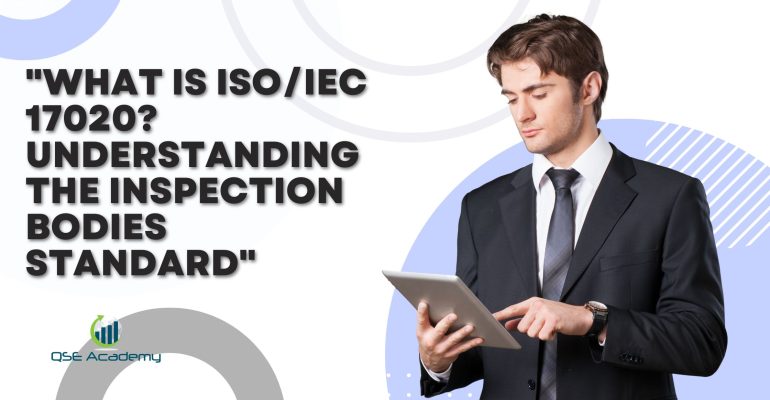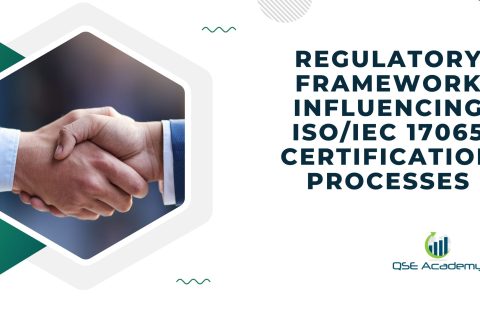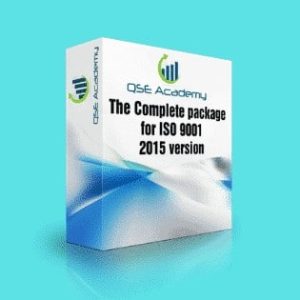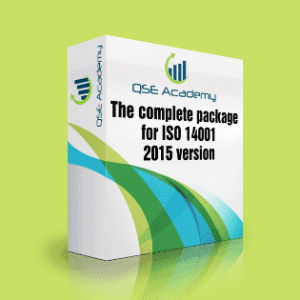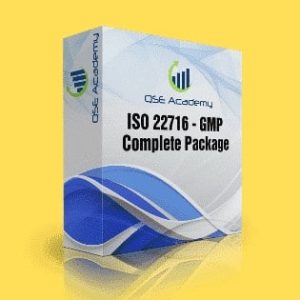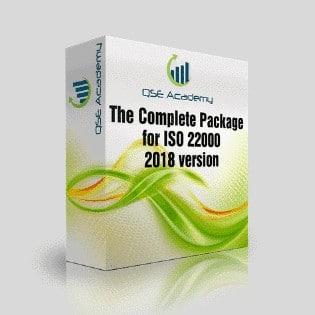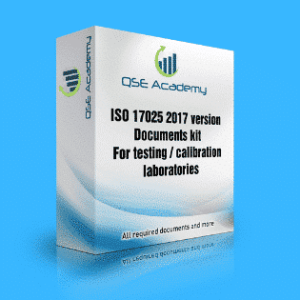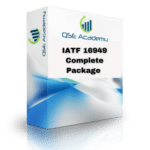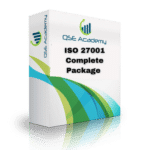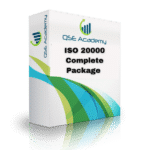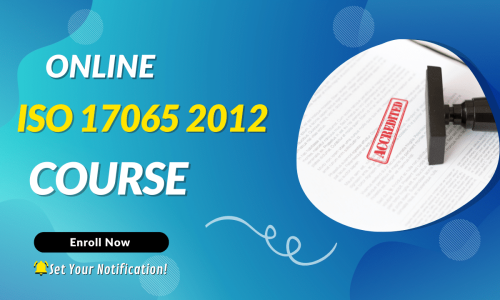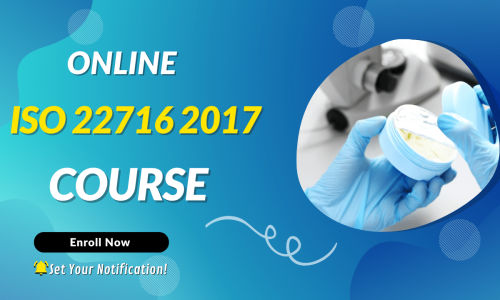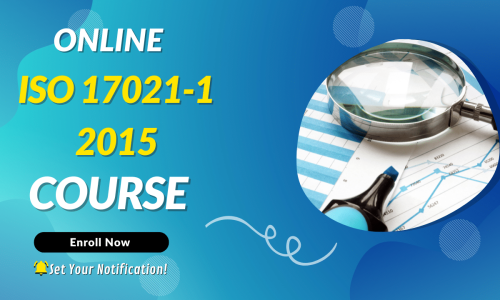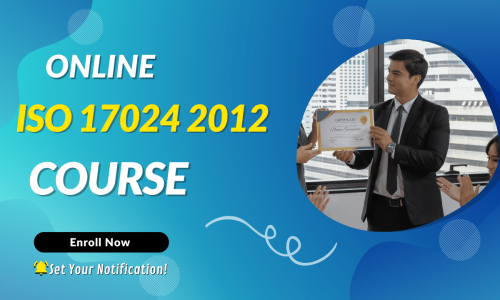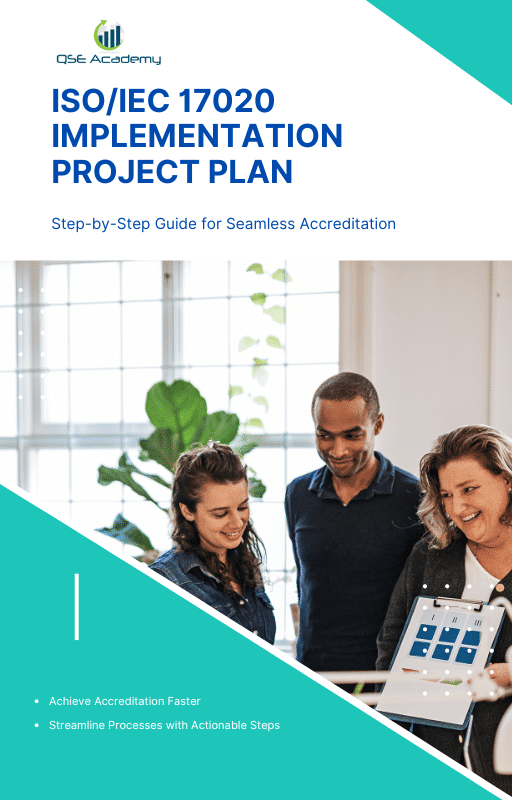What is ISO/IEC 17020? The Inspection Bodies Standard
Imagine a world where every inspection is trustworthy, consistent, and up to a global standard. ISO/IEC 17020 forms the invisible backbone of inspection integrity across various industries. Originally spawned to ensure excellence and uniformity in the inspection process, ISO/IEC 17020 sets a global benchmark for inspection bodies.
As pivotal as it is, not everyone is familiar with the nuts and bolts of this standard. This piece demystifies ISO/IEC 17020, guiding you through its essence, structure, and its critical role in maintaining high inspection standards. Prepare to explore the framework that shapes the world of professional inspection.
Introduction
ISO/IEC 17020:2012 is an international standard that delineates the criteria for the operation of various types of bodies performing inspection. The standard is designed to ensure that inspection bodies, regardless of type, operate in an impartial and consistent manner, providing services that adhere to a benchmark of quality and reliability. Its purpose is to instill confidence among clients, stakeholders, and regulatory bodies in the inspection services provided.
The importance of ISO/IEC 17020 lies in its international recognition and the trust it fosters. It attests to an inspection body’s technical competence and its ability to produce precise and impartial inspection reports. Inspection activities covered by this standard can vary widely—from the examination of materials, products, installations, plants, processes, work procedures to the provision of related inspection services.
This article aims to unpack the complexities of ISO/IEC 17020, detailing its role in enhancing the competence of bodies performing inspection and the quality of their inspection processes. For inspection bodies seeking accreditation, complying with the stringent requirements of ISO/IEC 17020:2012 is paramount, as it underlines their commitment to quality and accuracy in every stage of inspection.
Overview of ISO/IEC 17020
ISO/IEC 17020 is an internationally recognized standard that outlines the requirements for the competence of bodies performing various types of inspections. Designed to ensure that inspection bodies operate impartially and consistently, it provides a framework to facilitate harmonized inspection activities. By detailing the criteria for which these inspection services should be conducted, ISO/IEC 17020 helps in maintaining high levels of technical competence and ensures that inspection processes are carried out with consistency.
The standard distinctly categorizes inspection bodies into types A, B, and C—each differing in independence and links to organizations involved, which informs their capacity to provide non-bias inspection services. Type A bodies are completely independent of the activity they inspect, Type B bodies are separate but linked to a parent organization, and Type C bodies may be involved in the design, manufacture, supply, installation, use, or maintenance of items they inspect.
ISO/IEC 17020:2012 is the latest evolution of the standard, with its predecessor first published in 1998. The current version encompasses the requisite inspection methods, stages, and the management systems necessary for competent bodies. It specifies requirements for inspection reports and certificates, handling of inspection items, and the necessary procedures for dealing with irregularities.
Adherence to ISO/IEC 17020 is a statement of a commitment to quality in inspection services, and its application is seen across numerous industries—from examination of materials to subsequent reporting. Not only does it offer a robust accreditation process for inspection bodies, but it also instills confidence in consumers and stakeholders concerning the integrity of the inspection results. Overall, ISO/IEC 17020 plays a pivotal role in the accreditation process, ensuring that inspection certificates and reports issued are both credible and reliable.
Key Components of ISO/IEC 17020
ISO/IEC 17020:2012 specifies requirements for the competence of bodies performing inspection and for the impartiality and consistency of their inspection activities. It applies to inspection bodies of type A, B, and C, which are differentiated based on their independence. Type A bodies are fully independent, Type B bodies are separate entities that form a part of an organization involved in the design or manufacture of the items they inspect, and Type C bodies can be part of organizations that design, manufacture, or service the items inspected but must maintain objective operations.
The key components of ISO/IEC 17020 encompass several facets:
- General Requirements – This area covers the inspection body’s legal responsibility, impartiality and independence, ensuring there is no conflict of interest, and taking measures to maintain confidentiality and data protection.
- Structural Requirements – It demands a defined organizational structure, with clear roles and responsibilities to assure proper management and technical personnel who can effectively perform inspections.
- Resource Requirements – It specifies requirements for the competence of personnel, as well as the necessary infrastructure and equipment needed to carry out inspections effectively.
- Process Requirements – This component outlines the procedures for various inspection methods, ensuring proper handling of inspection items, employing appropriate sampling, testing, and measurement techniques, and the accurate reporting of inspection results.
- Management System Requirements – The focus here is on implementing a quality management system incorporating document control, regular internal audits, management reviews, as well as corrective and preventive actions.
These components collectively ensure that an inspection body can reliably undertake inspection activities, produce trustworthy inspection reports and certificates, and demonstrate technical competence and a commitment to quality.
The ISO/IEC 17020 Inspection Process
ISO/IEC 17020:2012 outlines the requirements for the competence of bodies performing various inspection activities. The inspection process encompasses several stages, each crucial for maintaining the integrity and quality of the services offered by inspection bodies. Here’s an overview of the ISO/IEC 17020 inspection process:
Preparation and Planning: This is the initial phase where inspection bodies understand client requirements and develop comprehensive inspection plans tailored to meet these needs.
Conducting Inspections: Includes carrying out inspection activities as per the developed plans. This stage emphasizes the use of appropriate inspection methods and techniques to ensure reliable and accurate results.
On-Site Inspection Activities: Are crucial for the direct examination of materials, processes, or installations. Inspectors collect and document evidence crucial for subsequent reporting.
Reporting and Communication: Follows the on-site activities with a focus on preparing thorough inspection reports. These documents communicate the findings in a clear and structured manner to clients.
Follow-Up Activities: Address any non-conformities identified during the inspection. This involves implementing corrective actions and possibly revisiting inspection sites to ensure that issues have been adequately addressed.
Throughout the process, ISO/IEC 17020 places a strong emphasis on continuous improvement, internal audits, and a commitment to quality, ensuring that inspection services are reliable and conform to international standards. Inspection bodies of type A, B, or C must have processes in place to guarantee technical competence and unbiased operations at every stage of inspection. The accreditation process by Accreditation Bodies validates an inspection agency’s adherence to these standards, reinforcing their reputation for quality management and competence.
Roles and Responsibilities in the ISO/IEC 17020 Inspection Process
ISO/IEC 17020:2012 specifies requirements for the competence of bodies performing inspection activities and for the impartiality and consistency of their inspection activities. Hereunder, the roles and responsibilities in the inspection process according to Section 4 of this standard are outlined:
Roles of Inspection Bodies
The core responsibility of inspection bodies is to ensure their operations align with the technical competence and neutrality standards outlined in ISO/IEC 17020. They must implement and maintain a quality management system, encompassing the entire inspection procedure, upholding impartial judgments and reporting.
- Ensuring Compliance with ISO/IEC 17020 Requirements: Inspection bodies must adhere to ISO/IEC 17020’s stringent requirements, which cover the entire inspection spectrum from establishment and execution to subsequent reporting.
- Maintaining Competence and Impartiality: They must conduct regular internal audits and proactive improvements to keep their services up to ISO/IEC standards, ensuring the competence and impartiality of inspection personnel at all times.
Roles of Inspectors
Inspectors are the agents executing the detailed work of inspecting, examining, and evaluating to ascertain conformity with requirements.
- Conducting Inspections According to Standards: Inspectors must carry out inspections in line with predefined and standardized inspection methods, ensuring consistent and reliable results.
- Documenting and Reporting Findings: The duty also encompasses the thorough documentation of findings and preparing inspection reports that reflect honesty and integrity.
Roles of Clients
Clients, on the other hand, facilitate the inspection operations by providing the necessary foundation for effective execution.
- Providing Necessary Information and Access: Clients should supply all essential information and grant inspectors access to areas under examination to ensure that inspections are comprehensive.
- Cooperating with Inspection Bodies: They play a collaborative role by interacting with inspectors and acting on recommendations provided in inspection reports.
- Implementing Recommended Actions: Implementing corrective measures or improvements suggested by the inspection body is crucial to ensure ongoing compliance and product/service quality.
In essence, the successful implementation of ISO/IEC 17100:2012 requires each party to diligently exercise its respective roles and obligations. This collaborative effort is pivotal for attaining a strong commitment to quality and continuous enhancement in inspection services. The synergy of inspection bodies, inspectors, and clients underpins the efficacy and reliability of the entire inspection process, thus ensuring a universally accepted trust in inspection activities.
Common Challenges and Solutions in Implementing ISO/IEC 17020
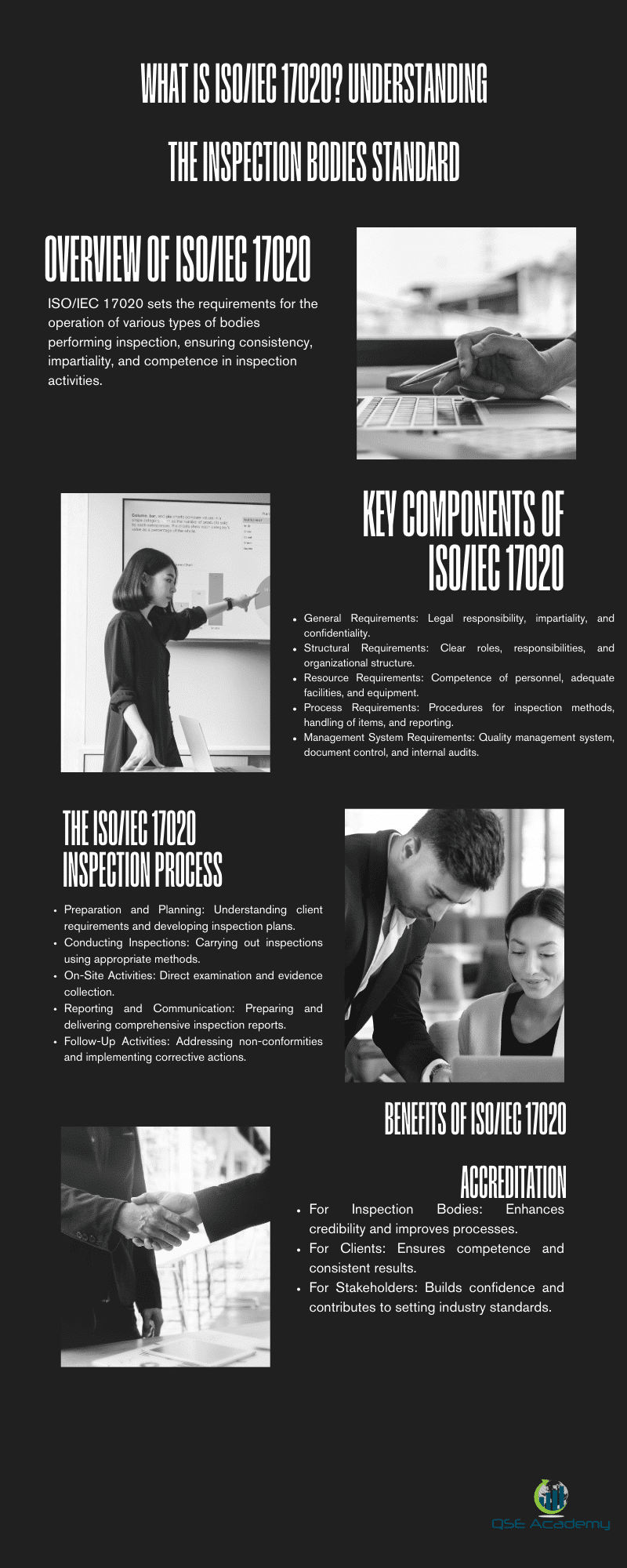
Implementing ISO/IEC 17020:2012 involves specific challenges for both inspection bodies and their clients. For inspection bodies, maintaining impartiality and independence can be a hurdle, especially if they are part of a larger organization with multiple interests. Ensuring the competence and consistency of services delivered is another daunting task, requiring continuous oversight and improvement.
Clients, on the other hand, often grapple with fully understanding the complex requirements of ISO/IEC 17020. When non-conformities are identified during audits, clients must be adept at addressing these findings promptly and effectively implementing necessary corrective actions to stay compliant.
To overcome these challenges, both inspection bodies and clients can adopt several best practices and solutions. Regular training and competency assessments ensure that all personnel involved in inspection activities stay competent and up-to-date with ISO/IEC 17020 and relevant technical requirements. Also, establishing clear policies and procedures to maintain impartiality is critical for inspection bodies. This would entail careful management of conflicts of interest and ensuring decisions are based solely on objective evidence.
Effective communication and collaboration between inspection bodies and clients are also paramount. Transparent dialogue can facilitate a better understanding of the standards’ requirements and the subsequent implementation process. Clients can benefit from guidance and support as they work to meet the complex demands of ISO/IEC 17020, thereby enhancing the overall efficacy and reliability of the inspection services.
Here is a concise list of common challenges and solutions in implementing ISO/IEC 17020:
Challenges for Inspection Bodies:
- Maintaining impartiality and independence
- Ensuring personnel’s technical competence and consistency of inspection activities
Challenges for Clients:
- Comprehending and adhering to ISO/IEC 17020 standards
- Addressing audit findings and executing corrective actions efficiently
Best Practice Solutions:
- Conducting regular training and assessments for technical competence
- Creating detailed protocols to safeguard impartiality
- Enhancing communication and working cooperatively with clients
By focusing on these strategies, inspection bodies and clients can foster a robust environment that guarantees high-quality inspection services and adherence to international standards.
Benefits of ISO/IEC 17020 Accreditation
ISO/IEC 17020 offers a robust framework for the operation of various inspection bodies, fostering confidence and ensuring quality within the industry. This international standard is pivotal for organizations that conduct examination of materials, products, installations, processes, or services. Here are some key benefits of ISO/IEC 17020 accreditation, which can be categorized for inspection bodies, their clients, and stakeholders.
For Inspection Bodies:
- Credibility: ISO/IEC 17020 accreditation enhances the confidence among the public and clients in the services provided as it signifies the technical competence and impartiality of the inspection body.
- Process Improvement: Adhering to the requirements of ISO/IEC 17020 leads to the refinement of inspection procedures, driving efficiency and minimizing errors in inspection reports.
For Clients:
- Assured Competence: Clients can trust the inspection services, knowing that the inspection body is thoroughly evaluated and deemed competent as per international standards.
- Consistent Results: With standardized methods and a commitment to quality, there is an assurance of reliability and uniformity in the outcomes of the inspection activities.
For Stakeholders:
- Confidence: Stakeholders like Accreditation Bodies, regulatory entities, and industries at large gain confidence in the integrity of inspection findings delivered by ISO/IEC 17020 accredited bodies.
- Contribution to Standards: These bodies help set industry benchmarks and contribute towards the continuous enhancement of inspection best practices.
Finally, the utilization of ISO/IEC 17020 helps in clarifying the many aspects of the inspection process, including the definition of inspection parameters, the stages of inspection, subsequent reporting, and the issuance of inspection certificates, all of which contribute to maintaining high-level standards within industries reliant on precise inspection activities.
Future Trends and Developments
Inspection bodies must keep up with global trends and technological advancements to remain effective and efficient. The anticipated updates to ISO/IEC 17020 can integrate with other quality and environmental management systems like ISO/IEC 9001 and ISO/IEC 14001, signaling a move towards a more cohesive approach to standards. As inspection activities evolve, technological advancements such as digital tools and remote inspection techniques are being embraced. These innovations have a profound impact, streamlining inspection processes and enhancing accuracy.
Sustainability and risk management are increasingly pivotal in inspection practices, reflecting a heightened global emphasis on these aspects. Inspection bodies are adopting best practices that incorporate these priorities, ensuring that inspection services remain relevant and reliable in the light of evolving standards and regulatory requirements.
Collaborative efforts between inspection bodies and stakeholders are vital for harmonizing practices and fostering a commitment to quality. Internal audits, inspection schemes, and the subsequent reporting are being fine-tuned to reflect these partnerships. With the advent of new inspection methods and examination of materials, there is a clear drive towards continual improvement in the competence of bodies performing inspections.
| Key Area | Developments |
| Technological Advancements | Digital tools, remote inspections |
| Integration with ISO/IEC Standards | ISO/IEC 9001, ISO/IEC 14001 compatibility |
| Sustainability & Risk Management | Increased focus, integration in audits |
| Global Best Practices | Adherence to international standards |
Moving forward, the accreditation process and the competence of inspection agencies will revolve around these dynamic components. Inspection certificates, reports, and all inspection activities will have to conform to not only the current requirements but also these emerging trends to secure and maintain credibility in the international arena.
Conclusion
Understanding ISO/IEC 17020:2012 is critical for organizations involved in inspection activities, as it provides a framework for maintaining high-quality inspection services. Adopting this international standard helps inspection bodies to demonstrate their technical competence and ensures that inspections are conducted impartially and consistently. With concrete criteria for evaluating the performance of different types of inspection bodies – whether they are independent (Type A), connected to an organization but serve multiple customers (Type B), or in-house for a single parent organization (Type C) – ISO/IEC 17020 is indispensable to any entity seeking to establish trust in its inspection processes.
The benefits of adhering to ISO/IEC 17020 extend beyond the inspection bodies to their clients and stakeholders. It provides a foundation for the issuance of reliable inspection reports and certificates, which are pivotal for subsequent decision-making processes. Moreover, the commitment to quality and regular internal audits mandated by the standard promote continual improvement of the inspection services rendered.
In conclusion, ISO/IEC 17020 accreditation is a testament to an organization’s dedication to excellence in the field of inspection. It is a benchmark that reassures all parties of an inspection body’s capability to conduct activities accurately and objectively. Organizations should be encouraged not only to achieve compliance with ISO/IEC 17020 but also to adopt its philosophy of continuous improvement, staying abreast of changes in standards to ensure ongoing conformity with the most current and stringent requirements.
Looking for More Resources on ISO 17020?
If you found this article helpful, explore our premium resources designed to help you achieve ISO 17020 certification efficiently:
- 📦 Complete Documentation Package for ISO/IEC 17020 2012: Get all the essential templates and documents you need for fast, easy implementation.
- 🎓 Online Course on ISO/IEC 17020 2012 : Enroll in our comprehensive training to master the key concepts and practical steps toward certification.
- 📋 ISO/IEC 17020 2012 Checklist: Download our detailed checklist to ensure you’ve covered every step of the process.
These resources are tailored to meet your needs and ensure a smooth certification journey. Explore them today and get one step closer to success!

